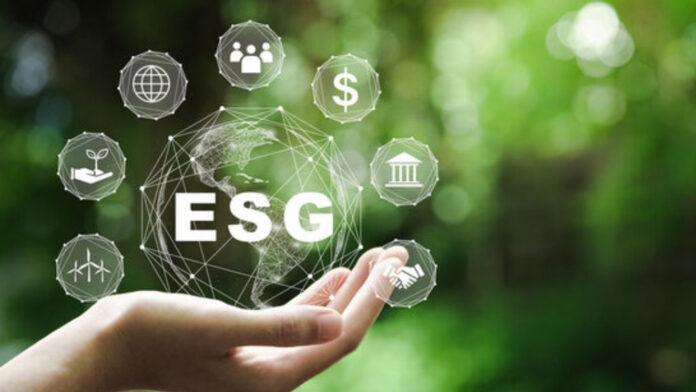NEW DELHI, Aug 28
Sustainability has emerged as a key concern across industries. Given the retail segment’s significant impact on the environment, retail players are taking a close look at their operations spanning manufacturing, packaging, logistics and waste management, among other elements.
At the global level, the importance of sustainable operations is being recognised to meet the demands of environment-friendly consumers as well as to contribute towards the creation of a greener, sustainable future. As per research by Statista, the estimated revenue generated from circular economy transactions totalled $388B in 2022. By 2026, that number is projected to almost double to $712B highlighting the rapid growth and acceptance towards initiatives driven by the circular. In this milieu, technology is acting as a robust enabler, promoting eco-friendly practices that facilitate the retail industry’s transition towards a circular economy via more sustainable operations.
In line with the retail industry’s commitment to achieve net-zero emissions by 2050, the proliferation of technologies across the phygital landscape has enabled and aided companies across the globe to reimagine products and services and how to monitor and evaluate waste and value. Smart technology, powered by advanced analytics, artificial intelligence, and the Internet of Things (IoT), offers several innovative solutions to curb the carbon trail of retailers right from production, and packaging to consumer engagement.
With the rise in awareness about one’s environment and global warming, consumers are turning to purpose-driven brands that stand for something – a mission propelled by Gen Z, millennials and other youthful cohorts who remain keen to support brands complying with ESG (environmental, sustainability and governance) metrics.
An American retail survey revealed that almost 90% of Gen X consumers were ready to pay an additional 10% or more for sustainable goods while a couple of years earlier a little more than 34% seemed willing. From resale platforms to innovative packaging and product innovation, here are some of the ways in which technology has transformed the working of the retail industry.
Refillable and Innovative Packaging Takes the Lead: With the growing consciousness among consumers, retailers realise that sustainable operations should be practised in entirety as piecemeal efforts don’t find favour with consumers who are wary of greenwashing. Consequently, brands are implementing solutions covering circular economy principles – reduce, reuse, repair, refurbish and recycle – that can trigger ground-level change. This includes the use of refillable and reusable packaging. Besides being good for retailers, these practices boost supply chain resilience and optimisation. At Colorbar Cosmetics, we believe in the convergence of smart technology and sustainability and terms like clean beauty, global manufacturing standards, confirmations with USA FDA, EU FDA, Japan FDA and Australia FDA have always been the hallmark around which the brand has been built. Delivering on the eco-consciousness promise, Colorbar has launched India’s first refillable lipstick range – a sustainable, vegan matte lipstick encased in 100% recyclable aluminium packaging. Each lipstick that one buys helps in reducing plastic going into the landfills to what 2 pet bottles of mineral water will produce.
The company is also exploring new technologies that make use of packaging made with bio-safe ingredients amongst other natural and safe ingredients.
Sustainable Inventory Management: By leveraging advanced technologies, retailers can analyse consumer preferences, optimise production processes, and introduce innovative solutions that minimise environmental impact. Infact, retailers can deploy smart technology to streamline and automate inventory processes, ensuring efficient inventory management. This leads to faster order fulfilment, efficient warehouse management, better lead times and the reassurance that stocks won’t run out. In this way, overstocking and wastage or understocking of products are eliminated via real-time tracking and monitoring, which also lowers overall energy consumption and its allied expenses.
Optimising Supply Chain Management: For retailers to match and exceed customer expectations, supply chain optimisation is vital. A recent research by the Harvard Business Review highlighted a litany of unsustainable supply chain issues that pop-up, including non-existent green management systems and high staff turnover as businesses decide to go green paving the way for supply chain digitisation. Hence, retailers can now deploy smart technology to streamline and automate inventory processes, ensuring efficient inventory management. Data-driven dashboards can now pull together metrics from every stage of a product’s journey and highlight eco-issues along the way, guaranteeing an item’s environmental provenance by the time it reaches the buyer. Additionally, retailers are switching to technology-driven solutions that facilitate the implementation of effective reverse logistics processes which involve the efficient handling of product returns, recycling, and product recovery. For example, RFID (Radio Frequency Identification) technology enables efficient product tracking and sorting during the return process. This technology provides retailers with valuable information about returned products, allowing them to make informed decisions regarding refurbishment, resale, or recycling.
Streamlining Transition Through Blockchain Integration: Another crucial element is the role of blockchain in allowing greater traceability and transparency to drive more eco-friendly practices. With blockchain, retailers can track, monitor and authenticate the origins of all products. This ascertains that products are organic or sourced ethically, thereby lowering the environmental footprint of unsustainable practices. Blockchain benefits also assist in combating counterfeit goods and help retailers choose suppliers using eco-friendly manufacturing practices.
As smart tools revolutionise the global retail industry, brands must invest in sustainable practices and innovative technologies to create a greener, more sustainable future. By leveraging the power of smart technology, brands can lead the way in ensuring environmental sustainability while simultaneously inspiring a positive transformation in consumer trends and behaviour to meet their net-zero targets.



























